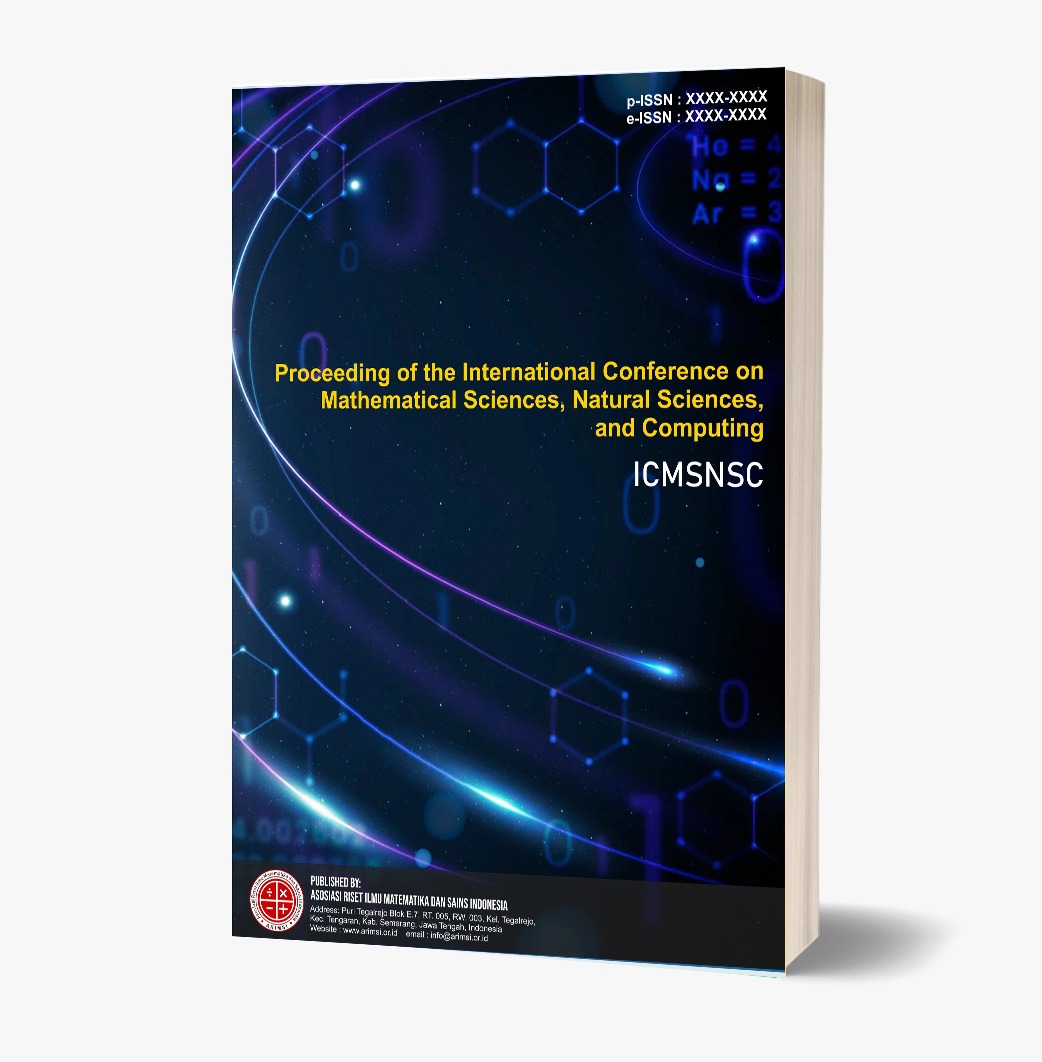Analysis of the Needs for Developing Innovative Chemistry Teaching Modules Based on Integrated Problem Based Learning with Local wisdom
Keywords:
Teaching Module, problem based learning, Local Wisdom, Machine learningAbstract
This study aims to analyze the quality of Grade XI SMA/MA chemistry textbooks, aligning with the standards set by the National Standards Agency for Education (BSNP). This research employs the Research and Development (R&D) method, specifically the ADDIE model (Analysis, Design, Development, Implementation, and Evaluation), with both qualitative and quantitative approaches. The results indicate that the textbooks scored: 3.37 for content validity, 3.87 for language, 3.85 for presentation, and 3.69 for graphics, categorizing them as highly valid.
References
Afrida, SN, Suyanti, RD & Sudrajat, A. (2021). Innovation of Interactive Multimedia Based on Guided Inquiry Using Articulate Storyline 3 as A Learning Media for Carbon and Silicone Materials in Non-Metal Inorganic Chemistry Caorses. Doconomics Sci-meet. 1, 192-199.
Arikunto, S. (2013). Basics of Educational Evaluation. Jakarta: Bumi Aksara.
Azmy, MK, Purwoko, AA & Hadisaputra, S. (2018). The Development Of Chemistry Teaching Materials In The Form Of Handouts Based (PBL) In Class XI IPA Madrasah Aliyah (Ma) Kediri District. Journal of Research & Methods in Education. 8(3),71-73.
Dibyantini, RE & Sulastri. (2022). Development of problem-based e-module teaching materials on students' critical thinking skills on reaction rate material. Scientific Journal of Education. 1(6),593-598.
Handayanti, R., Elvia, R. & Rohiat, S. (2021). Study of the Suitability Analysis of Chemistry Textbooks for Senior High School Students in Bengkulu City Based on BSNP Standards. Journal of Education and Chemistry. 5(1): 82 -87.
Harahap, NFA, Jahro, IS & Darmana, A. (2020). Feasibility Analysis of Chemistry Practicum Guide Book for Class XI Based on BNSP Integrated Green Chemistry. Proceedings of the 7th annual international seminar on transformative education and educational leadership.
Hasibuan, MP & Silaban, R. (2015). Analysis of the quality of chemistry teaching materials based on the 2013 curriculum. Journal of Science and Science Learning. 1(2), 159-164. https://jurnal.arkainstitute.co.id/index.php/educenter/index
Irwan, I., Hasbi, H. & Rosdiana, R. (2018). Application of Discussion Method in Increasing Learning Interest. Journal of Islamic Education. 1(1),43-54.
Paristiowati, M., Cahyana, U. & Bulan, BIS (2019). Implementation of Problem-based Learning – Flipped Classroom Model in Chemistry and Its Effect on Scientific Literacy. Universal Journal of Educational Research. 7(9A),56-60
Rahman, L., Silaban, R. & Nurfajriani. (2020). Development of e-Module Assisted Chemistry Flip Pdf Professional for Non-Metal Chemistry Learning Media for Carbon and Silicone. Doconomics Sci-meet.1, 185-191.
Rahmawati, A., Yolida, B. & Marpaung, RRT (2018). Effectiveness of Implementing Local Wisdom-Based Teaching Materials for Grade IV Students. Bioterdidik Journal: A Space for Scientific Expression, 6(5)
Sihaloho, GT, Sitompul, H. & Appulembang, OD (2020). The role of Christian teachers in increasing student activeness in the mathematics learning process in Christian schools. Journal of holistic mathematics education, 3(2), 200-215.
Sihombing, IS & Sitorus, M. (2022). Development of Project-Based Chemistry E-Modules on Electrolyte and Non-Electrolyte Ocean Materials. Scientific Journal of Education. 4(1),273-280.
Silaban, R., Pangabean, FTM, Hutapea, FM, Hutahean, E. & Alexander, IJ (2020). Implementation of Problem Based Learning (PBL) Scientific Approach Using Card Media to Improve Student Learning Outcomes on Teaching Chemical Bonds. Journal of Chemical Education. 2(8), 69-76
Simorangkir, R. & Sinaga, M. (2022). Development of Integrated Problem Based Learning Module Teaching Materials on Reaction Rate Material. Scientific Journal of Education. 1(3),207-216.
Suanda, N., & Wahyudiati, D. (2023). Ethnochemistry: Analysis of the Relevance of Material Atomic Structure with the Ngejot Tradition as a Source for Learning Chemistry. Hydrogen: Journal of Chemical Education. 11(3):267-274. https://doi.org/10.33394/hjkk.v11i3.7803
Yerimadesi, Y., Bayharti, B., Handayani, F. & Legi, WF (2016). Development of Chemical Equilibrium Module Based on Scientific Approach for Grade XI of Senior High School/Vocational High School. Journal of Science and Technology. 8(1), 85-97
Yolanda, S & Sitorus, M. 2023. Development of Chemistry Teaching Materials Based on Problem Based Learning (PBL) on the Topic of Acids and Bases at Sma Negeri 1 Percut Sei Tuan. Journal of Social Education and Humanities. 2 (3), 12109-12117.
Yudha, S. & Rahmi, A. (2023). Analysis of Chemistry Module Teaching Materials in Inorganic Chemistry 1 Based on the KKNI Curriculum. Journal of Management and Education. 1(3), 7-12.
Zakaria, LMA, Purwoko, AA & Hadisaputra, S. (2020). Development of Problem-Based Chemistry Teaching Materials with Brain Based Learning Approach: Validity and Reliability. Pilar MIPA Journal. 15(5),554-557.






